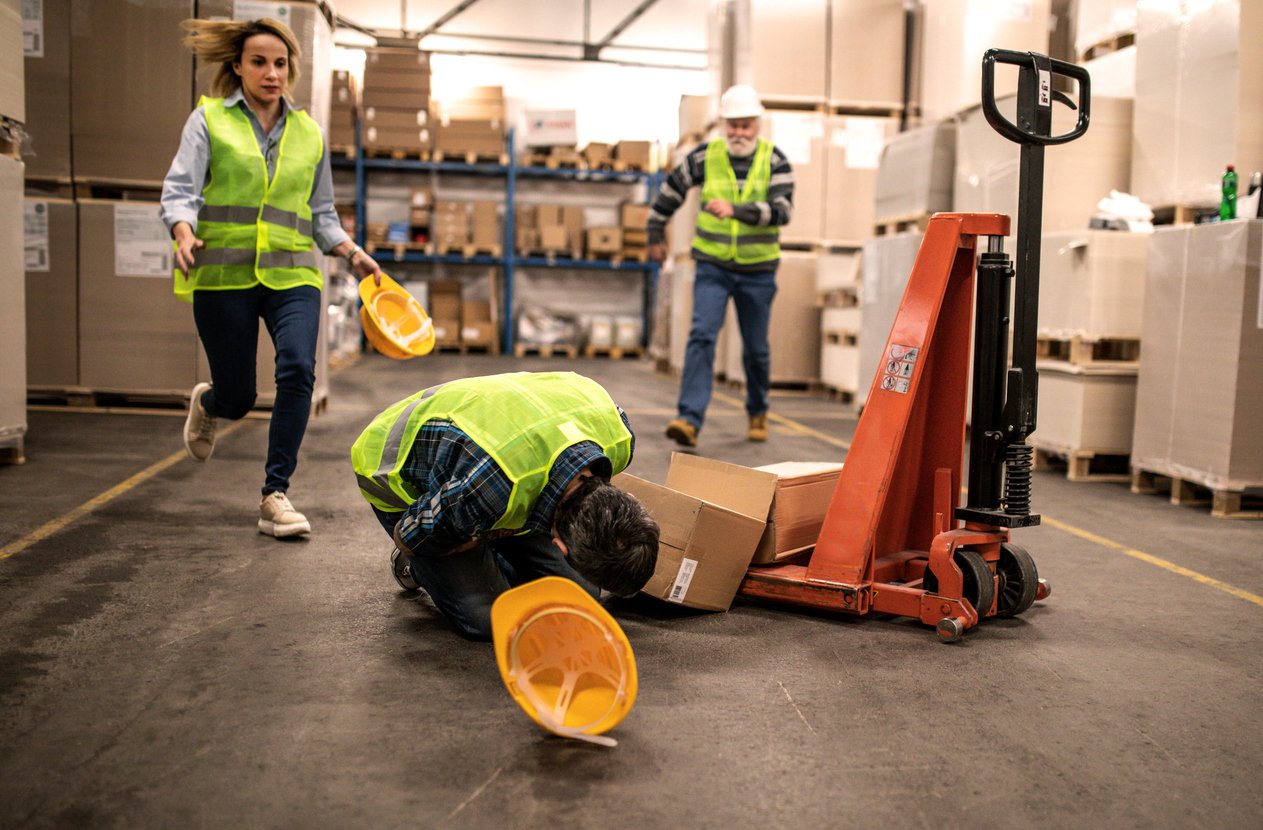
Has there been an accident or incident in your workplace? Wondering what to do next? The Guidance below will assist you in ensuring that you stay on the right side of the law.
Reporting a health and safety incident
The Reporting of Injuries, Diseases and Dangerous Occurrences Regulations 2013 (commonly referred to as RIDDOR) legally requires employers, those self-employed and those in control of work premises to report specific workplace incidents to the Health and Safety Executive (HSE).
What is reportable:
- Work-related accidents. If your worker is away from work due to injuries for more than 7 consecutive days, it is reportable, as well as an accident that results in a specified injury or death;
- Work related diseases. If your worker has a certain diagnosed occupational disease including occupational asthma.
- Dangerous occurrences. This is where there has not been an injury but the occurrence has the potential to cause harm.
HSE Investigations
The HSE triage team may contact you for the production of information and documentation relating to the RIDDOR Reportable incident. The HSE will afford very minimal time for you to respond – it is usually within 48 hours. This is because the information and documentation requested should already be readily available. Items and information submitted are reviewed by an Inspector to decide whether or not any further action will be taken.
In making the decision as to whether to investigate or take enforcement action following the submission of a RIDDOR Reportable incident, the HSE will take into account a number of factors, including, but not limited to:
- Priorities for action – the HSE prioritise specific hazards and consider originating common causes to ensure they deal immediately with serious risks.
- The severity and scale of the actual risk of serious personal injury.
- The HSE conduct gap analysis to determine how far a dutyholder has departed from its legal requirements and meeting relevant standards in accordance with Guidance. Considering the difference between where the dutyholder is and where they should be is the “risk gap”.
- Investigations are more likely to take place in cases of death, serious injury and/or where the dutyholder has a historical record for health and safety offences and/or where there is a wider public interest in an investigation.
The HSE’s powers
Health and Safety Inspectors have extensive powers. These powers are derived from the Health and Safety at Work etc Act 1974 (HSAWA) and include the ability to:
- Enter premises;
- Examine and investigate;
- Take possession of any article or substance;
- Require a person who the Inspector has reasonable cause to believe is able to give information relevant to any examination or investigation to answer such questions;
- Stop work; and
- Issue enforcement notices.
With regard to (iv), the HSE cannot compel someone to be interviewed under caution. This is a power available to police officers, but not the HSE.
Health and safety offences are criminal offences which can be tried in either the Magistrates’ Court or Crown Court.
Fees for Intervention
If the HSE are of the opinion that there has been a material breach of health and safety law, they will notify a dutyholder why the HSE is of that opinion. The dutyholder will be liable for the costs incurred by the HSE in identifying the breach and issuing an enforcement notice to rectify the material breach(es) as set out in the Notice. The HSE should confirm in correspondence to the dutyholder when Fees for Intervention (FFI) become payable.
FFI can be disputed; dutyholders have 21 days to submit a formal query. Queries can be raised when the FFI invoice includes costs that are not reasonable nor proportionate, or where the HSE have invoiced for costs that are not recoverable as they do not form part of the FFI regime, which is governed by The Health and Safety and Nuclear (Fees) Regulations 2022.
Police involvement
The police will only become involved in a health and safety investigation if the investigation is a joint police/HSE investigation into other criminal offences such as gross negligence manslaughter, or corporate manslaughter, following a work-related death for example.
The police have powers of arrest, and may arrest an individual if it ‘is necessary to allow the prompt investigation of the offence or of the conduct of the person in question’.
Following arrest, the police are likely to conduct an interview under caution. Anyone who finds themselves in this position is strongly advised to contact rradar as soon as possible.
Summarised top tips for incident reporting:
- Ensure any work place accidents are recorded internally in an accident book;
- Prior to conducting an internal investigation, liaise with rradar to explore whether the investigation can be protected by legal privilege;
- Seek advice from rradar with regard to your legal requirements for reporting to HSE under RIDDOR;
- Be prepared to respond to the HSE with any relevant policies, procedures, risk assessments, method statements, safe systems of work etc.,
- Ensure legal representation is sought to respond to any HSE investigation or enforcement notice;
- Seek advice as to whether any Fee for Intervention invoice is payable.


